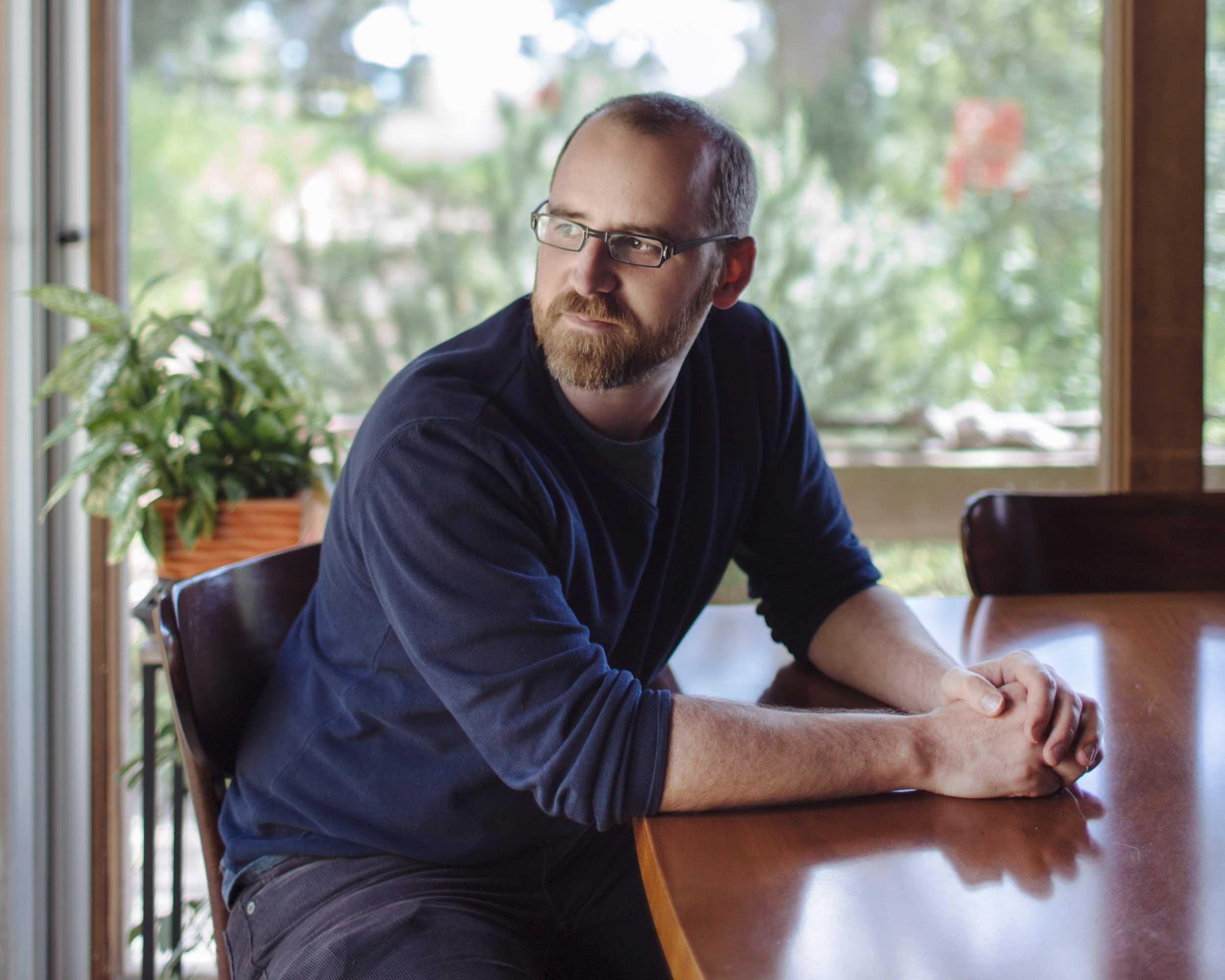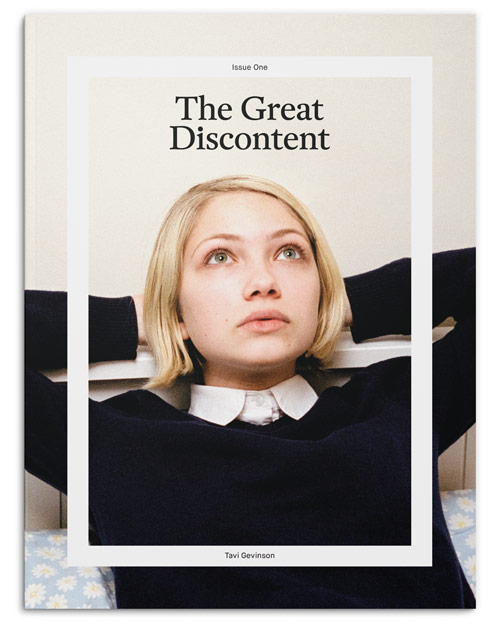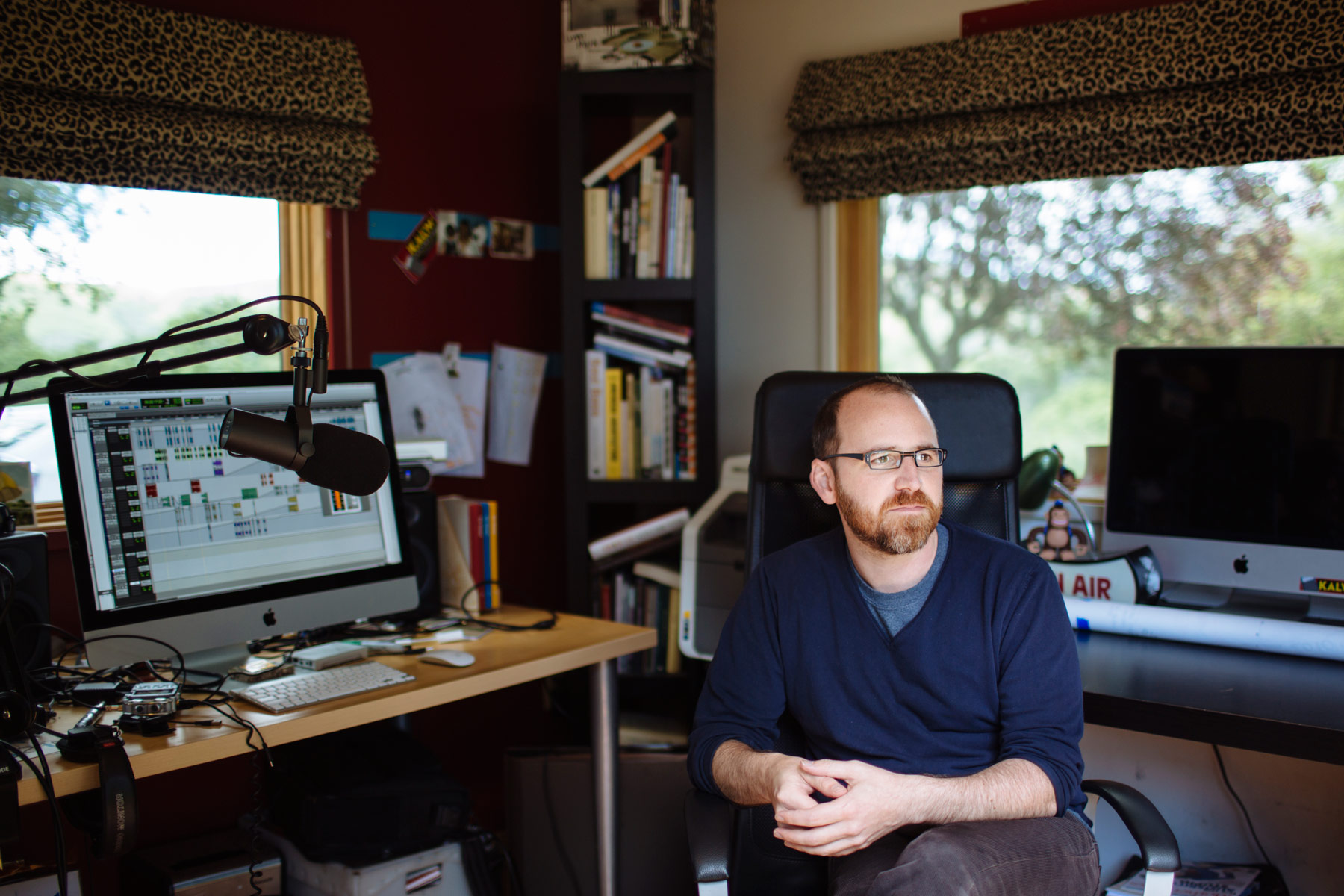
- Interview by Tina Essmaker December 2, 2014
- Photography by Helena Price
Roman Mars
Roman Mars is the host and creator of 99% Invisible, a short radio show about design and architecture, host and program director of PRX Remix, and a cofounder of Radiotopia, a collective of groundbreaking story-driven podcasts. Roman has ran three successful Kickstarter campaigns and was named one of Fast Company‘s 100 Most Creative People in 2013. He resides in the Bay area.
- broadcaster
- entrepreneur
 Editor’s note: This is a print-only feature, originally published in The Great Discontent, Issue One. To read the interview in its entirety, pick up the print magazine in our online shop.
Editor’s note: This is a print-only feature, originally published in The Great Discontent, Issue One. To read the interview in its entirety, pick up the print magazine in our online shop.
Describe your path to what you’re doing now.
In school, I was working on a PhD in genetics, actually. When I finished my classes and was only doing research, I listened to a ton of radio. I was studying one transposable element, a gene cluster in corn, for a long time. I thought that if I could study a new thing every day, like one would do when working in radio, then my life would be perfect. I began daydreaming about the idea of working in radio, although I didn’t know what that entailed. I did know that someone read the books for Ray Suarez on Talk of the Nation and someone told him what questions to ask; I thought of that as writing book reports about cool books, but I didn’t know it was called producing. I wanted to work in radio, so I slowly began trying to realize that through different means.
It took years to become a real thing, but I was obsessed with the idea. I moved out to San Francisco and made a little money in tech during the first dot-com bubble in 1998. After that, I volunteered at a radio station for a few years so I could learn the craft and become valuable, because I had been rejected for every internship I ever tried to get. I had tried to intern at This American Life and Sound Portraits, the predecessor to StoryCorps, and the big station here, KQED; no one would give me an internship. I ended up at a smaller station called KALW, and they let me stay. When they asked me how long I wanted to volunteer, I replied, “You’re going to have to kick me out.” I loved it there.
And you started 99% Invisible out of your bedroom, correct?
Yeah. (laughing) At the time, I was hanging around KALW where I was helping others start shows; I had a decent reputation for this inside the world of radio. For example, Jesse Thorn of Maximum Fun was trying to revamp his show, The Sound of Young America. I spent a couple weeks with him and we revamped his show to be Bullseye, which later became an NPR show. I spent time talking to the producers, working on a few pieces with them, and helping them figure out the style of their show.
Then the general manager at KALW, Matt Martin, pulled me aside to ask what I thought about having an architecture minute during Morning Edition. I thought about that for a while. I had this idea to do a story about the regulations of the angle of a curb cut to allow a wheelchair to go up on a sidewalk. I don’t know why I thought of that as the first story, because it was the most boring thing possible. I thought that if I could do a story about that and make it fun, then I could also have fun with the idea of reading the world through design choices. I became fascinated with doing that as a radio program because I was interested in the perversity of discussing visual things on the radio.

I started producing 99% Invisible out of my bedroom during off times. Because I was still producing for Snap Judgment, I worked on some of 99% at the office in Oakland. I liked working on Snap Judgment, but it was an emotional kind of storytelling whereas I have a more didactic, explanatory tone when reporting. I had to adapt my style to fit the host Glynn Washington’s style and whenever I’d sneak in facts or experts, they’d barely survive edits. I was looking for an outlet for my own pedantic tendencies, and 99% Invisible seemed like a good opportunity to work on my writing and hosting; I hadn’t been a host since Invisible Ink in 2004.
The show became a prescriptive exercise for me to work on the things I felt were lacking in my work. From the beginning, it felt different than other projects. It was one of the only times I’ve worked on something and kind of knew it was going to be good. I felt like it had the components of success. I knew I could fuck it up, but I’d never had that same glowing feeling about a project before. Because of that, I was willing to push my chips in on it, unlike anything else I’d ever done.
Was creativity part of your childhood, and did you have any idea that radio would be in your future?
I had no idea. I was creative as a child, but not any more or less than other kids. When I was a young, I studied science and thought I wanted to be a doctor, mostly because I wanted to have money. I wanted to be free of what I considered my most immediate threat. I didn’t think about being a creative person or artist at all; that seemed frivolous to me. Later on, I was super into music and wanted to start a record label. After graduate school, I hung around Athens, Georgia, for a while and helped start the film festival there. I was always into creative projects, but I was usually the responsible one who helped organize things.
When I started telling people I was doing radio, I’d say, “Isn’t this weird and incongruous?” My friends responded with, “Do you remember all those mix tapes you made, and the way you’d tell stories?” Me doing radio made more sense to the people around me. Something that I remembered later in life is that I used to tape TV shows and movies when I was a kid. I recorded the audio, played it back, and memorized the lines. I loved—and still do love—any dialogue-heavy movie, like Fletch or Good Morning, Vietnam. I was making radio out of everything.
All I know is that when I heard radio for the first time, I heard the type of writing and communicating that I felt I could do. There was something about the way people talked on the radio: plainly, but with good content. It spoke to me in a certain way, and I felt like I could do it. I was wrong in that sense—I was bad at it for a number of years. (laughing) 
